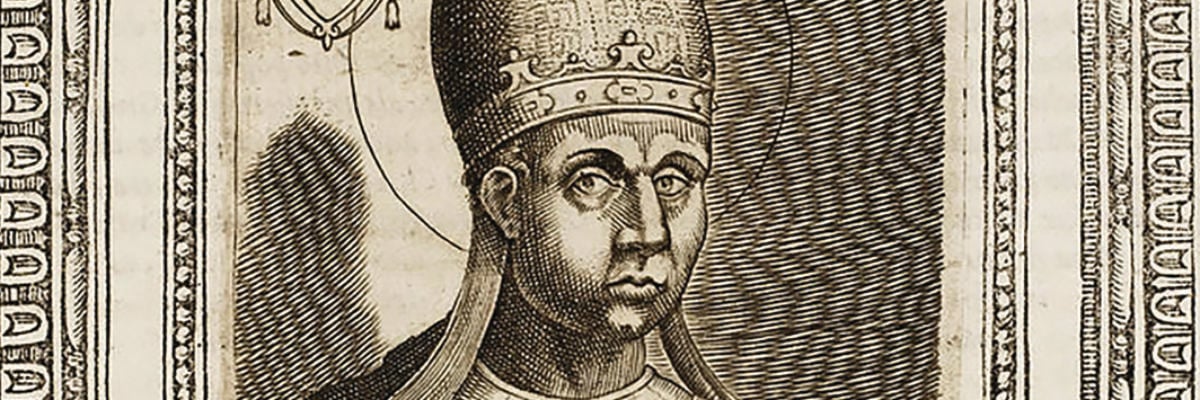
In A.D. 431, the Council of Ephesus declared as heresy the Pelagian belief that man could attain moral perfection in this life apart from grace. However, a couple of decades earlier, Pope Zosimus (417-418) met with one of Pelagius’s disciples, and Protestant apologists still cite this incident as evidence that against the dogma of papal infallibility.
For example, Eric Svendsen claims Zosimus “received confessions of faith from both Pelagius and Ceolestius [also spelled Caelestius], officially declared them orthodox, reproved the African bishops who condemned them, and subsequently changed his mind upon discovering that his predecessor (Innocent I) had also condemned these men” (Evangelical Answers, 25). But is that what really happened?
In 415, a regional synod of bishops in Africa condemned the teachings of Pelagius’s disciple Caelestius. The regional Council of Carthage also condemned Caelestius, and Pope Innocent I confirmed this decision. Pelagius and Caelestius refused to accept the councils’ condemnations and made a direct appeal to the pope. But the peope died in 417, before he received their appeal, so the matter fell into the hands of his successor, Pope Zosimus.
Zosimus met with Caelestius and after receiving letters from both men claiming they still accepted the teachings of the Catholic Church, he reversed their excommunications. Unfortunately, as Dom John Chapman writes in his study of the papacy, “The mistake of Pope Zosmius, and it was serious enough, was to believe Caelestius was sincere in his submission” (Bishop Gore and the Catholic Claims, 80).
Both letters were dishonest. Pelagius and Caelestius simply wanted their excommunications lifted so they could continue to spread their heresies. Caelestius wanted the pope to overrule letters the bishop of Constantinople sent warning churches in Greece and western Asia about his teachings.
Augustine, along with the other African bishops who were familiar with these heretics, realized that the pope had been duped. They urged Zosimus to reconsider his ruling, and Augustine commented on the matter in his 131st sermon: “Already on this matter two councils have sent to the Apostolic See, whence also rescripts [reports] have come. The cause is finished [Latin: causa finita est]; would that the error also be finished!”
What he meant was that two African councils, one in Carthage and another in Mileve, sent decisions on the Pelagian heresy to Pope Innocent. Rescripts (or reports) from the pope came back that unequivocally condemned Pelagianism and confirmed the excommunications of Pelagius and Caelestius. However, the pope did leave room for the men to return to the Faith if they were to “recover from the snares of the devil.”
This was not an example, as some Protestants assert, of the bishops instructing the pope on a major teaching and them receiving his submission to their judgment (even if it were, infallibility does not preclude the pope from receiving and agreeing with counsel from his brother bishops). Neither is it an example of the pope reversing a decision merely because he became aware of the actions of his predecessor. Instead, this was an example of a pope reinstating alleged heretics to communion with the Church and then later reversing that decision after the heretics’ ruse was discovered.
Pope Zosimus never infallibly defined any of the tenets of Pelagianism when he accepted these heretics into the Church, so this case does not refute the dogma of papal infallibility.



